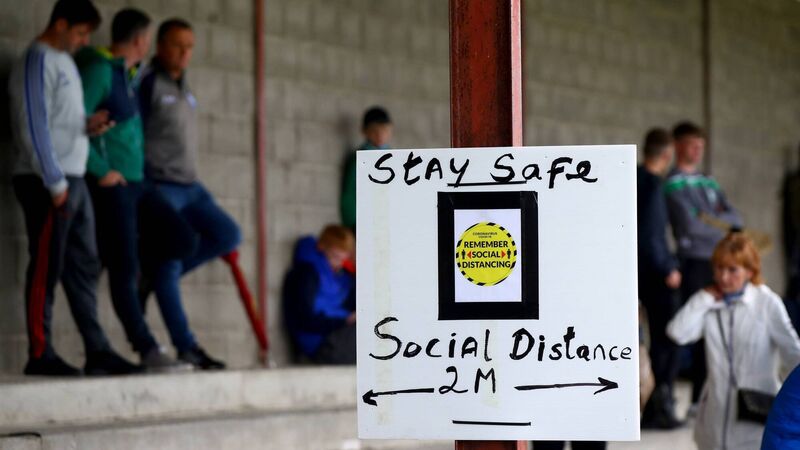Letter to the Editor: We need to suppress, not live with, coronavirus

Social distancing signage at Holycross GAA Club, Ballycahill, Co. Tipperary. Photo: INPHO/James Crombie
Try from €1.50 / week
SUBSCRIBELike many other people, I had never heard of Dr Michael Ryan until March of this year, during the outbreak of Covid-19. This executive director of the World Health Organisation hit our TV screens in dramatic fashion, as he explained how we needed to ‘take the fight to the virus’.
In a stark warning to governments, he stated that ‘speed trumps perfection”. He further went on to explain that ‘the virus will always get you, if you don’t move quickly’.
Already a subscriber? Sign in
You have reached your article limit.
Annual €130 €80
Best value
Monthly €12€6 / month
Introductory offers for new customers. Annual billed once for first year. Renews at €130. Monthly initial discount (first 3 months) billed monthly, then €12 a month. Ts&Cs apply.
Newsletter
Sign up to the best reads of the week from irishexaminer.com selected just for you.

Select your favourite newsletters and get the best of Irish Examiner delivered to your inbox
Tuesday, February 10, 2026 - 10:00 AM
Monday, February 9, 2026 - 5:00 PM
Monday, February 9, 2026 - 9:00 PM
© Examiner Echo Group Limited